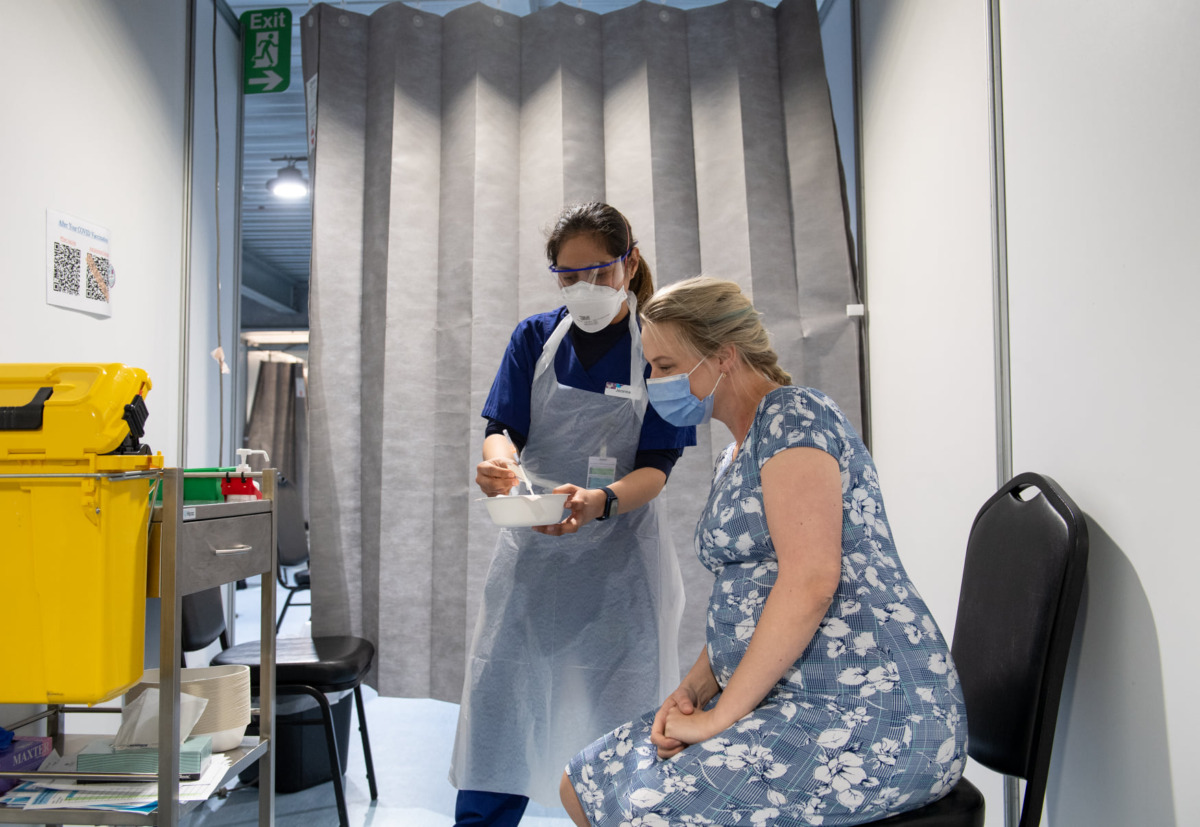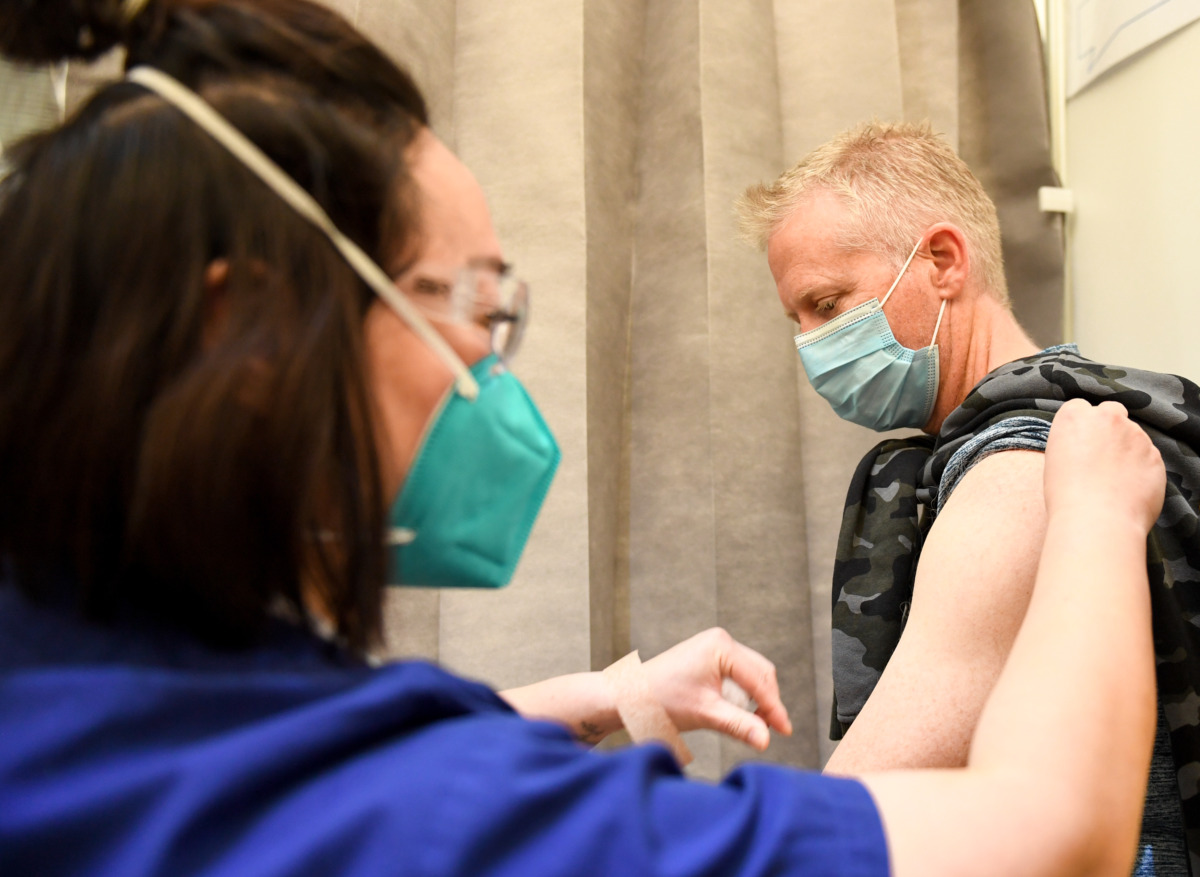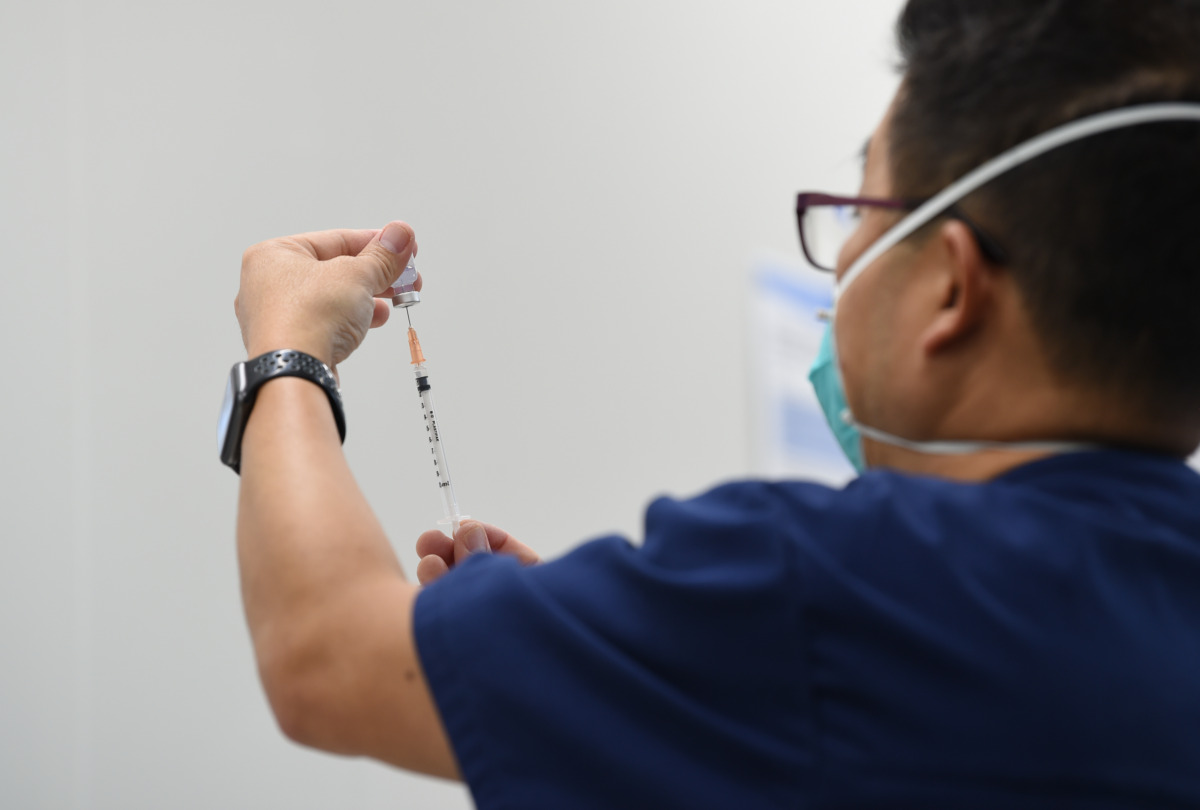

Vaccinations
COVID-19 vaccination for pregnant people
People who are pregnant will be offered Pfizer COVID-19 vaccine at any stage of pregnancy.
Pregnant people who contract COVID-19 have a significantly increased risk of severe illness and adverse pregnancy outcomes. COVID-19 during pregnancy also substantially increases the risk of complications for the baby.
To support any decision-making, vaccination providers and people who are pregnant, breastfeeding or planning pregnancy are encouraged to refer to the Australian Government’s Shared decision making guide for women who are pregnant, breastfeeding or planning pregnancy.
Pregnant women receiving antenatal care through the Joan Kirner Women’s and Children’s can get a referral slip from their midwife or obstetrician and go directly to the Immunisation Service located on the first floor to get their COVID-19 vaccine.
Updated vaccine safety advice for people who are pregnant:
Global surveillance data from large numbers of people who are pregnant have not found any significant safety concerns with COVID-19 vaccines given at any stage of pregnancy. There is also evidence of antibody in blood and breastmilk, which may offer protection to infants through passive immunity.
The Centre of Disease Control in the United States issued an advisory on 29 September 2021, recommending people who are pregnant, have recently been pregnant, or are trying to become pregnant, urgently get vaccinated. Stating that the risks associated with contracting COVID-19 are far greater than any known or potential risks of the COVID-19 vaccine.
International data has indicated mRNA vaccines – including Pfizer – are safe to be given at any stage during pregnancy and are also suitable for people who are breastfeeding.
The Australian Government’s advice remains unchanged for people trying to become pregnant and breastfeeding: People who are trying to become pregnant do not need to delay vaccination or avoid becoming pregnant after vaccination. If you are breastfeeding, you can have the Pfizer vaccine. You do not need to stop breastfeeding after vaccination.
Pregnancy and COVID-19 vaccines webinar:
On Thursday 30 September 2021, Western Health hosted a webinar to discuss the safety and efficacy of COVID-19 vaccines for people who are pregnant. The webinar featured a panel of experts in the obstetrics and immunology fields:
- Dr Marion Kainer, Head of Infectious Disease Unit at Western Health,
- Dr Nisha Khot, Obstetrician,
- Rebecca Giarrusso, Clinical Midwife Consultant,
- Hosted by Kylie Roper, Senior Manager, West Metro COVID-19 Vaccination Program and experienced midwife.
You can watch the webinar below.
Frequently asked questions
I’m pregnant (or breastfeeding or planning pregnancy or undergoing IVF). Should I get the COVID-19 vaccine and is it safe for me and my baby?
Yes, mRNA vaccines such as the Pfizer vaccine and Moderna vaccine (the vaccines routinely offered to pregnant women in Australia) have been shown to be safe in pregnant women, based on accumulated real-world evidence from other countries. What this means is that hundreds of thousands of women around the world have received Pfizer vaccine (and many have received Moderna vaccine) before or during pregnancy with no adverse health effects on the women and the babies they go on to deliver.
The Pfizer and Moderna vaccines consist of messenger RNA (or mRNA) – a molecule – that when injected into our arm, tells our body to create these proteins that our immune system knows to attack and form antibodies against it. These antibodies mean that our bodies offer protection if we’re later infected with COVID-19. The vaccine DOES NOT cross the placenta but the antibodies do, which is a good thing because it offers some protection to the unborn child. Similarly, vaccinated women who are breastfeeding can pass on these antibodies to their babies. We know from vaccinating women for many years against whooping cough, that antibodies that cross the placenta DO NOT have any long-term harmful impacts on babies. The vaccine itself does NOT cross the placenta and hence, cannot have any long-term harmful impacts on babies.
Vaccinated people can still get COVID-19 but they are much less likely to get severely ill and need hospitalisation or admission to an intensive care unit. They are also less likely to suffer from the harmful impacts of COVID-19 on pregnancy like stillbirth and premature birth.
In terms of timing, the best time for pregnant women to get vaccinated is now. It doesn’t matter which trimester you’re in, vaccination is safe for every stage of pregnancy.
Vaccination is also safe for women undergoing IVF, hormone treatment or embryo collection.
What are the potential side effects from the COVID-19 vaccination?
All people receiving the vaccination may experience common side effects like:
- pain at the injection site
- tiredness
- headache
- muscle pain
- joint pain
- diarrhoea
These side effects commonly last 24-48 hours. It is safe for pregnant women to take a panadol for side effects like pain at the injection site, headache or muscle/joint pain.
Does the COVID-19 vaccine impact fertility of men or women?
No, there is no evidence that COVID-19 impacts the fertility of men or women. However, there is evidence that tells us that the sperm count of men who get infected with COVID-19 decreases significantly and it can also cause erectile dysfunction.
Getting COVID-19 can lead to a condition called long COVID in both men and women. Long COVID can have long-term impacts on general health and this can affect fertility.
For more information, head to The Department of Health website.



